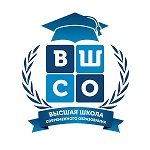ПРОСОЦИАЛЬНЫЙ МЕДИАРЕСУРС: ПРОЕКТНО-ОБРАЗОВАТЕЛЬНЫЙ ИНТЕНСИВ СТУДЕНТОВ
Аннотация
Актуальность. Актуальность темы исходит из ее различных аспектов и проявлений поведения, направленного на оказание помощи другим людям и обществу, в том числе с использованием цифровой среды. В статье рассмотрена технология проектной деятельности студентов по созданию просоциальных медиа. Представлен опыт просоциального проектирования на платформе Университета 20.35.
Цель исследования. С учетом результатов изучения отношения молодежи к медиаресурсам, пропагандирующим помощь другим людям и обществу, разработать и реализовать проектно-образовательную интенсив-технологию по созданию студентами просоциальных медиа.
Методы и методология. Методологическую основу исследования составили подходы медиаобразования. Методы: отбор и систематизация данных, анализ документов, мониторинг интернет-медиа, количественный анализ публикаций в молодежных интернет-медиа, проектирование. Эмпирические данные осмыслены и обработаны с помощью контент-анализа, количественных методов анализа (описательные статистики, анализ процентных соотношений. Расчеты произведены на базе пакета статистических программ SPPS 22.
Результаты. Выявлены предпочтения молодежи в выборе форм подачи просоциальной тематики в медиапространстве, изучены их реакции на просоциальные посты, блоги, видео, публикации, определена структура проектируемого просоциального медиаресура. Реализована образовательная интенсив-технологи по созданию тестового прототипа просоциальному медиа «Сделаем мир лучше!».
Заключение. На основании результатов исследования отношения молодежи к просоциальным медиа, разработана и реализована технология обучения проектированию просоциального медиа, позволившая сформировать у студентов установки на просоциальную активность в медиасреде.
Область применения результатов. Результаты исследования целесообразно учитывать при разработке программ и проектов, направленных на обеспечение цифровой социализации молодежи.
Скачивания
Литература
Список литературы
Кисляков П. А. Методические аспекты использования информационно-коммуникационных технологий в подготовке будущих педагогов в области социальной безопасности // Педагогическое образование в России. 2013. № 1. С. 24-29.
Кисляков П. А., Шмелева Е.А. Психология безопасного просоциального поведения личности. М. ООО «Когито-Центр», 2021. 357 с.
Ланцова С. В., Шмелева Е.А., Кисляков П.А. Просоциальный потенциал онлайн игр для подростков // Цифровизация в условиях пандемии: миссия социального университета будущего: сборник материалов XXI международного социального конгресса. М., 2022. С. 186-189.
Ланцова С.В., Шмелева Е.А., Кисляков П.А. Потенциал медиаресурсов в воспитании просоциального поведения в молодежной среде // Наука и образование в современном вузе: вектор развития: Материалы научно-практической конференции. Шуя, 2021. С.110-113.
Медиаресурсы как средство формирования просоциальной активности современной молодежи / Н. Ю. Прияткина, В. К. Маркелов, Ю. И. Савельева [и др.] // Современные тренды образования: материалы IV Всероссийской (национальной) педагогической научно-практической конференции. Шуя, 2022. С. 141-145.
Серова Е.А. Формирование просоциального поведения молодежи как одна из задач публичной политики // Вестник социально-политических наук. 2014. №13. С. 44-47
Шмелева Е. А., Кисляков П. А., Ланцова С. В. Просоциальность молодежи: возможности медиа // Человеческий фактор: Социальный психолог. 2022. № 1(43). С. 192-199.
Шмелева Е.А., Кисляков П.А., Ланцова С.В., Меерсон А.Л.С. Медиаресуры как сфера просоциального взаимодействия молодежи в цифровой среде // Цифровая гуманитаристика и технологии в образовании (DHTE 2021): Сборник статей II Всероссийской научно-практической конференции с международным участием. М., 2021. С.546-556.
Bandura A. Social cognitive theory of moral thought and action. In: Handbook of moral behavior and development. Ed. by W. M. Kurtines, J. L. Gewirtz. 1991. Vol. 1. pp. 45-103
Barlett C.P., Anderson C.A. Examining media effects: The General Aggression and General Learning Models. In E. Scharrer (Ed.), Media effects/media psychology. Boston, MA: Blackwell-Wiley. 2013. pp. 1-20.
Coyne S.M., Padilla-Walker L.M., Holmgren H.G., Davis E.J., Collier K.M., Memmott-Elison M.K., Hawkins, A.J. A meta-analysis of prosocial media on prosocial behavior, aggression, and empathic concern: A multidimensional approach // Developmental Psychology. 2018. Vol. 54(2). P. 331-347
De Leeuw R.N.H., Kleemans M., Rozendaal E., Anschütz D.J., Buijzen M. The impact of prosocial television news on children’s prosocial behavior: An experimental study in the Netherlands // Journal of Children and Media. 2015. Vol. 9(4). P. 419-434
Gentile D.A., Anderson C.A., Yukawa N., Saleem M., Lim K.M., Shibuya A., Sakamoto A. The effects of prosocial video games on prosocial behaviors: International evidence from correlational, longitudinal, and experimental studies // Personality and Social Psychology Bulletin. 2009. Vol. 35. P. 752-763
Greitemeyer T. Effects of Prosocial Media on Social Behavior When and Why Does Media Exposure Affect Helping and Aggression? // Current Directions in Psychological Science. 2011. Vol. 20(4). P. 251-255. DOI: 10.1177/0963721411415229
Greitemeyer T., Osswald S., Brauer M. Playing prosocial video games increases empathy and decreases schadenfreude // Emotion. 2010. Vol. 10. P. 796-802
Gyldensted C. From mirrors to movers: Five elements of positive psychology in constructive journalism. Loveland. CO: Group Publishers, 2015
Hogan M.J., Strasburger V.C. Media and Prosocial Behavior in Children and Adolescents. Handbook of Moral and Character Education. Educational Psychology Handbook. Ed. by Nucci LP; Narvaez D. 2008. P. 537-553
Kislyakov P.A., Shmeleva E.A. Analysis of Russians’ views on personal qualities as a basis for prosocial safe behavior factors’ identification // Open Psychology Journal. 2020. Vol. 13(1). P. 40-48.
Kislyakov P., Shmeleva E., Silaeva O. The possibility of prosocial media in the digital socialization of children // Child in the Digital World: The International Psychological Forum: Book of Abstracts. M., 2021. P. 63. DOI 10.26226/morressier.6082ba61dc2fa1af56246f31.
Kleemans M., Schlindwein L.F., Dohmen R. Preadolescents’ Emotional and Prosocial Responses to Negative TV News: Investigating the Beneficial Effects of Constructive Reporting and Peer Discussion // J Youth Adolescence. 2017. Vol. 46. P. 2060-2072
Mares M. L., Stephenson L.J. Prosocial Media Use and Effects. In book: The International Encyclopedia of Media Effects. 2017. DOI: 10.1002/9781118783764.wbieme0153
Mares M.L., Woodard E. Positive effects of television on children’s social interactions: A meta-analysis // Media Psychology. 2005. Vol. 7.
P. 301-322.
McIntyre K. E. Constructive journalism: The effects of positive emotions and solution information in news stories (Doctoral dissertation). Chapel Hill, NC: The University of North Carolina at Chapel Hill. 2015
Obar J.A., Wildman S. Social media definition and the governance challenge: an introduction to the special issue // Telecommun. Policy. 2015. Vol. 39. P. 745-750.
Prot S., et al Long-term relations among prosocial-media use, empathy, and prosocial behavior // Psychol Sci. 2014. Vol. 25(2). P. 358-368
Rosenkoetter L.I. The television situation comedy and children’s prosocial behavior // Journal of Applied Social Psychology. 1999. Vol. 29. P. 979-993.
Saleem M., Anderson C.A., Gentile D.A. Effects of prosocial, neutral, and violent video games on children’s helpful and hurtful behaviors // Aggressive Behavior. 2012. Vol. 38. P. 281-287
Tsvetkova M., Macy M. The Contagion of Prosocial Behavior and the Emergence of Voluntary-Contribution Communities. In: Gonçalves B., Perra N. (eds) Social Phenomena. Computational Social Sciences. Springer, Cham. 2015. pp. 117-134.
References
Kislyakov P. A. Pedagogicheskoe obrazovanie v Rossii [Pedagogical education in Russia]. 2013, No. 1, pp. 24-29.
Kislyakov P. A., Shmeleva E.A. Psihologiya bezopasnogo prosocial’nogo povedeniya lichnosti [Psychology of safe prosocial behavior of the individual]. M., 2021, 357 p.
Lancova S. V., Shmeleva E.A., Kislyakov P.A. Sbornik materialov XXIi mezhdunarodnogo social’nogo kongressa “Cifrovizaciya v usloviyah pandemii: missiya social’nogo universiteta budushchego” [Digitalization in a pandemic: mission of the social university of the future : collection of materials of the xxi International Social Congress]. M., 2022, pp. 186-189.
Lancova S.V., Shmeleva E.A., Kislyakov P.A. Materialy nauchno-prakticheskoj konferencii “Nauka i obrazovanie v sovremennom vuze: vektor razvitiya” [Science and education in a modern university: vector of development: Materials of a scientific and practical conference]. Shuya, 2021, pp.110-113.
Priyatkina N. Yu., Markelov V. K., Savel’eva Yu. L. [i dr.] Materialy IV Vserossijskoj (nacional’noj) pedagogicheskoj nauchno-prakticheskoj konferencii “Sovremennye trendy obrazovaniya” [Modern trends in education: materials of the IV All-Russian (national) Pedagogical scientific and practical conference. Shuya, 2022, pp. 141-145.
Serova E.A. Vestnik social’no-politicheskih nauk [Bulletin of Socio-Political Sciences]. 2014, no.13, pp. 44-47
Shmeleva E. A., Kislyakov P. A., Lancova S. V. Chelovecheskij faktor: Social’nyj psiholog [Human factor: Social psychologist]. 2022, no. 1(43), pp. 192-199.
Shmeleva E.A., Kislyakov P.A., Lancova S.V., Meerson A.L.S. Sbornik statej II Vserossijskoj nauchno-prakticheskoj konferencii s mezhdunarodnym uchastiem “Cifrovaya gumanitaristika i tekhnologii v obrazovanii (DHTE 2021)” [Digital humanities and technologies in education (DHTE 2021): Collection of articles of the II All-Russian Scientific and Practical Conference with international participation]. M., 2021, pp.546-556.
Bandura A. Social cognitive theory of moral thought and action. In: Handbook of moral behavior and development. Ed. by W. M. Kurtines, J. L. Gewirtz, 1991, vol. 1, pp. 45-103
Barlett C.P., Anderson C.A. Examining media effects: The General Aggression and General Learning Models. In E. Scharrer (Ed.), Media effects/media psychology. Boston, MA: Blackwell-Wiley, 2013, pp. 1-20.
Coyne S.M., Padilla-Walker L.M., Holmgren H.G., Davis E.J., Collier K.M., Memmott-Elison M.K., Hawkins, A.J. A meta-analysis of prosocial media on prosocial behavior, aggression, and empathic concern: A multidimensional approach. Developmental Psychology, 2018, vol. 54(2), pp. 331-347
De Leeuw R.N.H., Kleemans M., Rozendaal E., Anschütz D.J., Buijzen M. The impact of prosocial television news on children’s prosocial behavior: An experimental study in the Netherlands. Journal of Children and Media, 2015, vol. 9(4), pp. 419-434.
Gentile D.A., Anderson C.A., Yukawa N., Saleem M., Lim K.M., Shibuya A., Sakamoto A. The effects of prosocial video games on prosocial behaviors: International evidence from correlational, longitudinal, and experimental studies. Personality and Social Psychology Bulletin, 2009, vol. 35, pp. 752-763.
Greitemeyer T. Effects of Prosocial Media on Social Behavior When and Why Does Media Exposure Affect Helping and Aggression? Current Directions in Psychological Science, 2011, vol. 20(4), pp. 251-255. https://doi.org/10.1177/0963721411415229
Greitemeyer T., Osswald S., Brauer M. Playing prosocial video games increases empathy and decreases schadenfreude. Emotion, 2010, vol. 10, pp. 796-802.
Gyldensted C. From mirrors to movers: Five elements of positive psychology in constructive journalism. Loveland. CO: Group Publishers, 2015.
Hogan M.J., Strasburger V.C. Media and Prosocial Behavior in Children and Adolescents. Handbook of Moral and Character Education. Educational Psychology Handbook. Ed. by Nucci LP; Narvaez D. 2008, pp. 537-553.
Kislyakov P.A., Shmeleva E.A. Analysis of Russians’ views on personal qualities as a basis for prosocial safe behavior factors’ identification. Open Psychology Journal, 2020, vol. 13(1), pp. 40-48.
Kislyakov P., Shmeleva E., Silaeva O. The possibility of prosocial media in the digital socialization of children. Child in the Digital World: The International Psychological Forum: Book of Abstracts. M., 2021, pp. 63. https://doi.org/10.26226/morressier.6082ba61dc2fa1af56246f31.
Kleemans M., Schlindwein L.F., Dohmen R. Preadolescents’ Emotional and Prosocial Responses to Negative TV News: Investigating the Beneficial Effects of Constructive Reporting and Peer Discussion. J Youth Adolescence, 2017, vol. 46, pp. 2060-2072.
Mares M. L., Stephenson L.J. Prosocial Media Use and Effects. In book: The International Encyclopedia of Media Effects. 2017. https://doi.org/10.1002/9781118783764.wbieme0153
Mares M.L., Woodard E. Positive effects of television on children’s social interactions: A meta-analysis. Media Psychology, 2005, vol. 7, pp. 301-322.
McIntyre K. E. Constructive journalism: The effects of positive emotions and solution information in news stories (Doctoral dissertation). Chapel Hill, NC: The University of North Carolina at Chapel Hill. 2015.
Obar J.A., Wildman S. Social media definition and the governance challenge: an introduction to the special issue. Telecommun. Policy, 2015, vol. 39, pp. 745-750.
Prot S., et al Long-term relations among prosocial-media use, empathy, and prosocial behavior. Psychol Sci, 2014, vol. 25(2), pp. 358-368.
Rosenkoetter L.I. The television situation comedy and children’s prosocial behavior. Journal of Applied Social Psychology, 1999, vol. 29, pp. 979-993.
Saleem M., Anderson C.A., Gentile D.A. Effects of prosocial, neutral, and violent video games on children’s helpful and hurtful behaviors. Aggressive Behavior, 2012, vol. 38, pp. 281-287.
Tsvetkova M., Macy M. The Contagion of Prosocial Behavior and the Emergence of Voluntary-Contribution Communities. In: Gonçalves B., Perra N. (eds) Social Phenomena. Computational Social Sciences. Springer, Cham, 2015, pp. 117-134.
Просмотров аннотации: 401
Copyright (c) 2022 Elena A. Shmeleva, Pavel A. Kislyakov, Natalya Yu. Priyatkina, Ayzek-Leyb S. Meerson, Stanislav V. Belov, Valery K. Markelov, Ekaterina A. Ananyeva

Это произведение доступно по лицензии Creative Commons «Attribution-NonCommercial-NoDerivatives» («Атрибуция — Некоммерческое использование — Без производных произведений») 4.0 Всемирная.





































